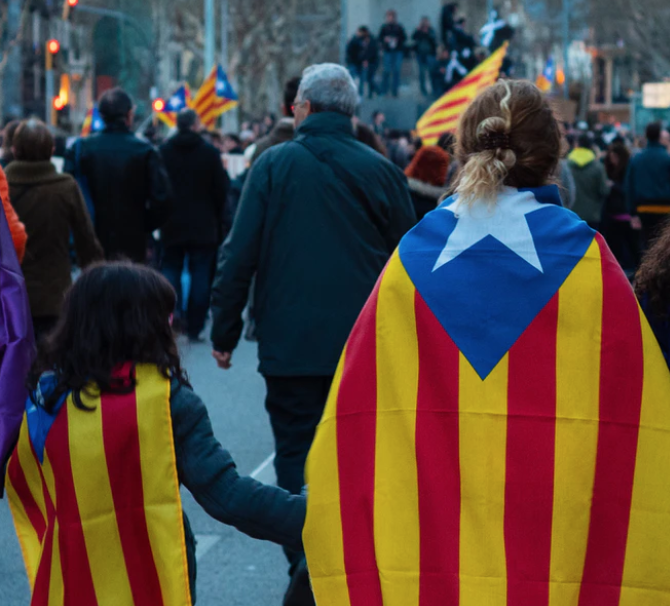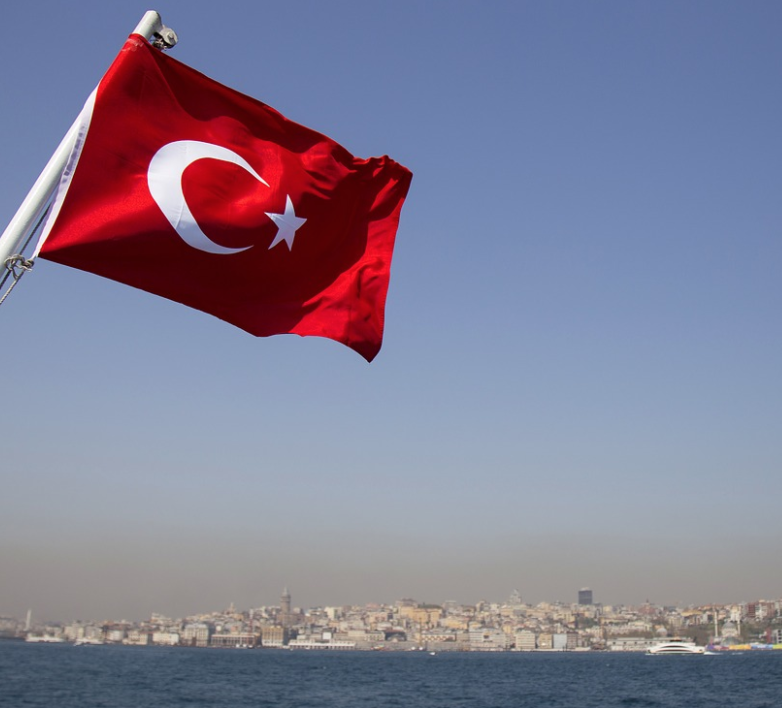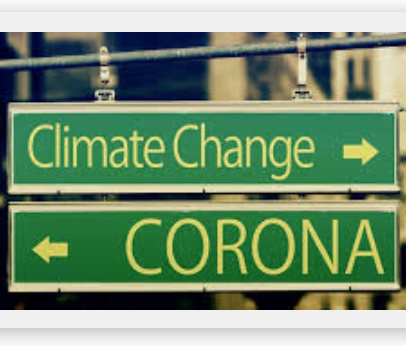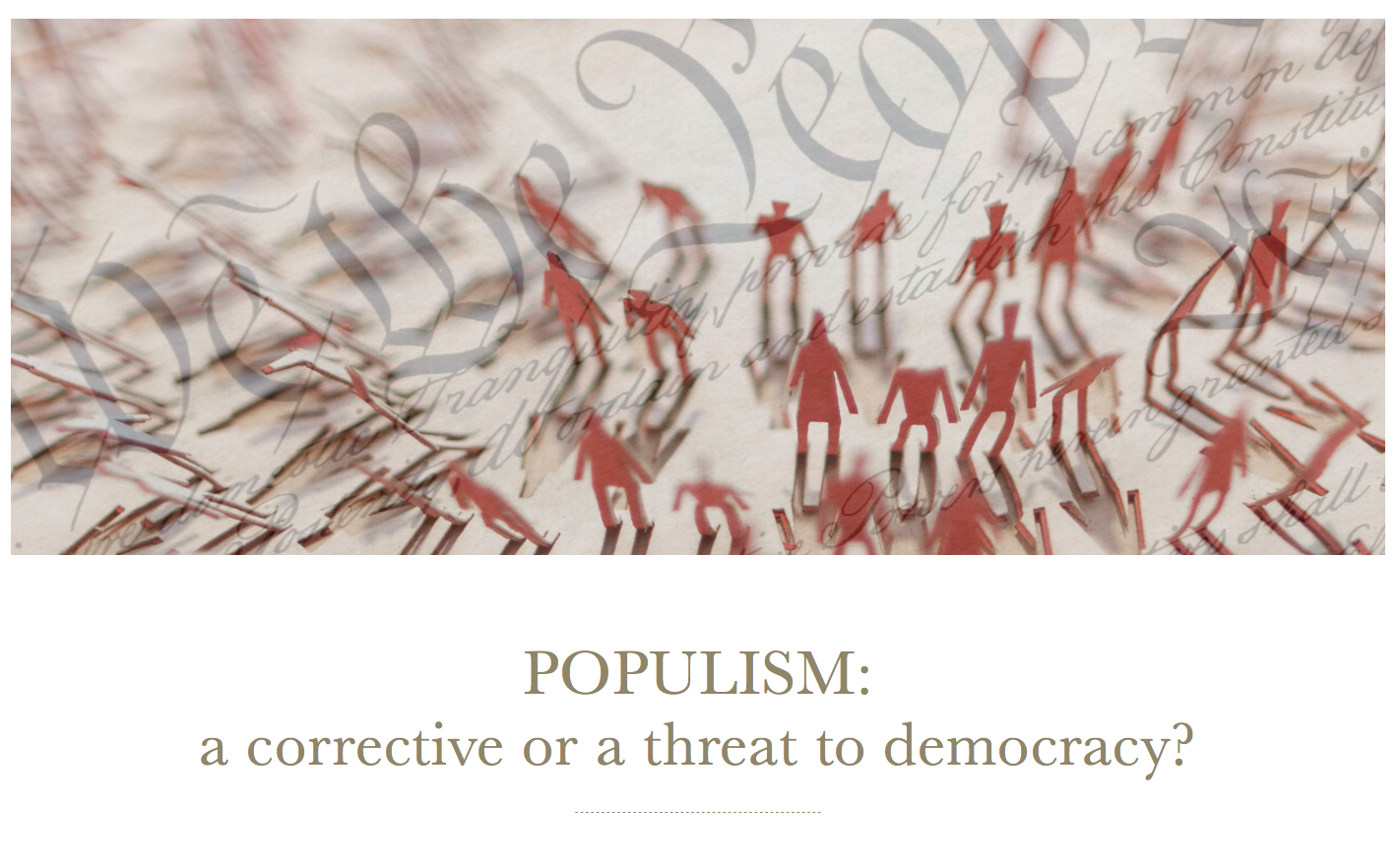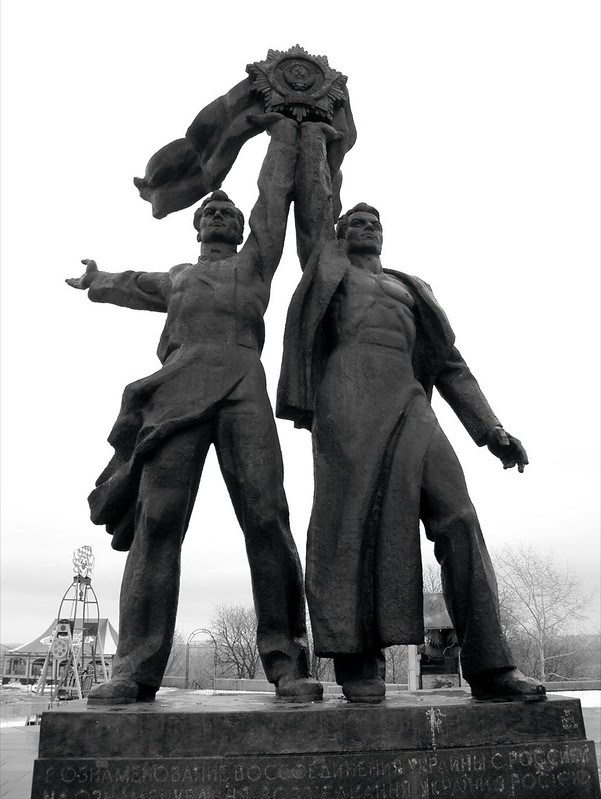By Pablo Ouziel, Centre for Global Studies, University of Victoria
On December 5th, I attended the seminar Self-determination: failures and successes at the Universitat Pompeu Fabra in Barcelona. This international seminar was the closing event of a Research Project lead by Joan Vergés-Gifra (Universitat de Girona), Ivan Serrano (Universitat Oberta de Catalunya), and Peter Kraus (Universität Augsburg). I found the event to be a tremendous contribution towards the dialogical resolution of the political conflict between Catalonia and Spain and the social conflict existing within Catalonia. Only in June, I gave a talk in the Universitat Pompeu Fabra around the 15M movement and the occupations of public squares in Spain in 2011. During that talk, I had the pleasure of meeting some of the speakers that participated in the event I attended last week. From June until today, I have witnessed palpable differences in the way in which these academics speak about Catalonia and the current political crisis. The main differences from my perspective are, a broadening of the imaginary of possibility for resolution of the conflict, and a genuine commitment to listening to the other side while undergoing self-critique. Despite the fact that everyone in last week’s seminar defends the idea of self-determination, there is a clear intent at critical reflection of the steps taken by those defending the Catalan independence process. This is not to say that all of a sudden, pro-independence academics in Catalonia are shifting the blame from the Spanish State to the Catalan pro-independence leaders. Like myself, these academics are very clear about the authoritarian practices of a Spanish State that carries with it fascistic legacies from its dictatorship. Nevertheless, we all acknowledge that not everything on the pro-independence side was exemplary.
The conversation in this seminar on self-determination was initiated by Andreas Oldenburg (Freie Universität Berlin). The title of his talk was “Constitutional Politics of Peoples”. Oldenburg began his contribution citing James Tully and his understanding of “freedom as non-domination”. This was his attempt at walking towards a constitutional politics of the people by giving the constituent people their say through the organization of deliberative mini-publics. In these spaces citizens would decide on things like what kind of referendum should Catalonia have and what kinds of questions should be asked. This Oldenburg reminds us, is what Tully calls the first phase of negotiation. This phase is followed by a second, in which the negotiation with the rest of the state opens up. As Oldenburg interprets Tully, this avoids moves towards unilateral secession without seeking consensual agreement with the State. What Oldenburg means by this is that if the State does not agree once there has been genuine deliberation with the Catalan people, then Catalan’s have a right to civil disobedience. This is the groups right to constituent self-determination following a democratic process in which all claims are negotiated. For Oldenburg, there is a constitutional right to secede because constituent people come before the constitution. Despite this acknowledgment of the right to secede, Oldenburg actually defends federalism as a better option. Although he reserves the final choice to the constituent people.
Kraus was the discussant to Oldenburg’s paper. His main question was: What to do if the federal option does not work? From Kraus’ perspective there is no level of ‘federality’ in Spain to protect a minimum of sovereignty. Therefore, he asks: What are the minimum levels of ‘federality’ required for freedom as non-domination to be actual? He then follows this with the following question: What are the consequences if these levels are not granted? For Kraus, sucession has to be taken very seriously, Catalonia and Spain are part of the EU, so in a sense, Catalonia’s independence is like an internal secession of part of a polity within the EU. With this secession, the constitutional rules and capitalism would stay within the parameters delineated by the EU. Through such secession there could even be the pertinent economic compensations to Spain. Kraus ultimately thinks that despite the fact that we exist in a complex multi-identity world, in a normative sense nationality is the kind of collectivity we need to stabilize republican commitments. For him, as a non-nationalist, nationality aims at institutional completeness. This final point from Kraus, Oldenburg refutes by arguing that there are more genuinely political alternatives to nationalism as a point of unity. Oldenburg defends more cosmopolitanism as an antidote to nationalism. This is what he thinks is required in order to address the global problems that we face.
Following this very stimulating session, we went into a short coffee break prior to resuming our multilogue with a talk by Klaus-Jürgen Nagel (Universitat Pompeu Fabra). The title for his contribution was: “Quandaries of legitimacy in the German unification process”. The aim of bringing German unification was to evaluate the ways in which legitimacy could be obtained for the demands of the Catalan Independence movement. Nagel, described the way in which exceptions are always made when there is interest in processes moving forward. For example, he spoke of the fact that before unification West Germany as part of the EU traded with East Germany without having to pay levies for dealing with a foreign power. This, despite the fact that East Germany was not in the EU and all transactions with non-EU countries had a levy attached to them. In addition, with unification East Germany did not become the 13th state to join the EU, but entered through the back door. This is why con-federal arguments during the process were ignored as they would force East Germany to join the EU through the normal application channels. This was agreed upon, because West Germany said that it would pay for unification and not the EU. Adhesion was carried out through article 23 of the West German constitution and unification could be considered legitimate by federal pact. It was federal money which financed it. Nagel, also spoke of legitimacy by consent. According to him, there was explicit and implicit consent before, during, and after unification. This one can observe according to Nagel, through the study of prior election results, the ratification of treaties, the foundational elections of the unified Germany, and post-unification public opinion polls.
Sören Keil (Canterbury Christ Church University) was the discussant for this intervention. For Keil, the main concern was determining who actually was the source of legitimacy during German unification. As he pointed out, in the West it was clear because it was the Länder but in the east identifying this legitimacy is more complicated because of the East German relation with the Soviet Union.
Keil’s second point had to do with sovereignty. As he put it, at the time neither of the German states was actually fully sovereign. Due to the post-War settlement, unification happened in a framework linking German unification with the transference of powers to Brussels. This led Keil to ask to what extent sovereignty was a variable worth looking at when thinking about German unification.
Keil also discussed different forms of legitimacy. The fact that there was no referendum for unification was not a problem in Germany but it would have been a problem in other places. As Keil puts it, there is legitimacy at different points in time, therefore, legitimacy as a theoretical tool is problematic; it risks looking back and re-writing history.
Finally, Keil asked: What can we learn from German unification? For him it was a successful German revolution. As he put it, German’s are not good at revolution, yet if one studies the unification process, it is clear, at least in the East, that protests for democracy quickly became protests for unification. This crystalizes, as Keil pointed out, with the shift in the language of a slogan popular at the time from “We are the people” to “we are a people”.
Both Nagel’s talk and Keil’s critique generated a long debate. Joan Vergés-Gifra (Universitat de Girona), asked which of the lines of legitimacy presented by Nagel was the most important. Oldenburg asked whether legitimacy could best be seen as legitimacy by welfare. In the sense, that in East Germany people just wanted to have all the beautiful products they knew were available in the West. If there had not been this promise of welfare, he argues that the process of unification would have required other steps. Finally, Pau Bossacoma (Universitat Pompeu Fabra) brought the question back to the demands of the Catalan people, by pointing out that the Maastricht treaty was treaty reform and that what the Catalan and Scottish pro-independence voices want is a treaty revision through article 48 of the European Constitution, not changes through article 49.
The next speaker in the event was Jule Goikoetxea (Universidad del País Vasco/EHU). The paper she was intending to present was: “Self-determination processes in the Basque Country: new discourses and strategies”. However, by the time she arrived to the talk she realized she wanted to talk about privatizing democracy in Europe. She mixed political theory with case studies, and her main argument was that there existed a causal connection between neo-liberalism and secession. According to her, the growing privatization of democracy was causing people to want to secede. The demands of movements like 15M, Occupy and the anti-austerity movements in Latin America were being grouped under demands for self-determination. For Goikoetxea, sovereignty demands are going to be re-defined during the 21st century but ultimately this is the democratic demand of governing oneself. In the case of Catalonia and the Basque country, this is a demand against privatization which in Spain is being carried out through centralization. The kind of sovereignty demands she is seeing in Spain are learning with non-patriarchal sovereignties found within the country’s feminist movements. Goikoetxea understands the EU as part of the neoliberal privatization project, she argues that EU integration has led to stronger states. What she means by this is stronger executives with a stronger judicial system to support these executives. Goikoetxea finished her talk by reminding us that in 2006 federalism was the main demand to Spain coming from Catalonia, and as she points out, this has changed to secession because of privatization and centralization.
The Discussant for Goikoetxea’s paper was Ivan Serrano (Universitat Oberta de Catalunya). Serrano praised Goikoetxea’s contribution and spoke of the de-democratization spoken of by Wendy Brown. He also spoke of the gamification of the political process by movements like Tsunami democratic in Catalonia. This is a de-centralized movement that organizes through an app called Telegram and which has conducted a series of actions including blocking Barcelona’s airport through a mass demonstration.
Keil asked regarding self-determination if the goal was to be better off or to be able to do things differently. Vergés-Gifra emphasized that rather than speaking of a causal relationship between independence demands and neoliberal privatization, it would be more accurate to speak of a correlation in certain cases. As he pointed out, all the demands in the new statutes for autonomy in Catalonia and the Basque country have been democratic demands. All related to having more political capacity.
Goikoetxea responded to this discussion by emphasizing that the causal link she was referring to was in regards to what leads to big mobilizations taking place. The main demands are for more democracy and the anger is coming because people are losing power. For Goikoetxea the causal relation is the loss of power, the fact that people are unable to govern themselves.
Following a lunch break the afternoon sessions began with an intervention by Vergés-Gifra: The title was: “An ethnicity bias in Catalan independentism? An analysis of its discourses and legislative actions”. According to Vergés-Gifra, the critique against the pro-independence movement in Catalonia goes something like this: It is top-down, elite led, non-urban, non-cosmopolitan, populist, xenophobic and ‘ethnicist’. He has developed a case against all these lines of criticism, yet, during his talk he focused only on responding to those speaking of the Catalan pro-independence movement as an ‘ethnicist’ political movement. The reason he was interested in speaking about this, is the fact that he considers this a critique that is growing in popularity. He considers it a part of the revisionist turn in studies on the Catalan pro-independence movement. As he points out, before it was presented as an exemplary civic kind of nationalism which was set apart from Basque nationalism which was described as ethnicist by mainstream commentators. This dichotomy, Vergés-Gifra does not find useful, he does not think it holds. As he puts it, in Catalonia there is no ethnicist dimension to the Catalan pro-independence movement. Being Catalan, he says, has nothing to do with being a nationalist, but has to do instead with contributing to the forging and creation of a Catalan nation. Vergés-Gifra argues that if one studies all the institutional and legal moves towards independence in Catalonia since 2010, one actually sees how there has been a tremendous attempt at broadening the scope of people who can be part of the Catalan nation. This he says is clear in laws passed, like the covenant of immigration and reception of 2010 which made Catalonia into a receiving nation. It is also clear in how Catalonia grew from 3,6 million people in 1997 to 7,5 million people in 2010, predominantly through immigration. As Vergés-Gifra argues, the more political the Catalan process has become, the less ethnicized pro-independence parties have become. Having said this, and despite defending the fact that there has been no ethnic conflict so far, Vergés-Gifra does acknowledge that ethnic conflict is possible if something changes.
Following Vergés-Gifra’s talk and a response by Goikoetxea in a feminist key, Keil, asked why Spain was so keen on calling the Catalan independence movement ethnicist when everything Spain has done towards Catalonia is ethnicist. Of course, he is not surprised. He understands that many Spanish intellectuals call those defending independence ethnicist in order to delegitimize them.
Finally, Bossacoma, gave us the last session with a paper titled “Coercion and Accommodation in Spain. The case of Catalonia”. As a lawyer for the Catalan government, Bossacoma spoke of the jurisprudence of the Constitutional court regarding referendums. As he emphasized, referendums are allowed, but the process necessary in order to have a referendum makes it almost impossible to be able to have one. That is, anything that alters the constitution is required to follow of article 168 of the Spanish constitution. With article 167 which is an ordinary procedure it is fairly easy to have a referendum, but when 168 is required, it is very rigid and it actually protects constitutional articles and not ideas. If there were to be a referendum on independence for Catalonia, it would require a 2/3 majority in the Spanish congress and a 2/3 majority in the Spanish senate. Then it would require the dissolution of parliament and once a new parliament is formed another 2/3 majority in congress and a 2/3 majority in the senate. Only then could a referendum be held and it would be one in which all Spanish people would have the right to vote.
Bossacoma acknowledges that in 2017, there was not a genuine attempt at reaching consensus on the referendum. It is also true, he says, that the move in 2015 to call plebiscitary elections in Catalonia was also used by Franco during the Spanish dictatorship. Bossacoma also points out that although during the election of 2015 secessionist obtained the majority of seats they did not obtain the majority of votes. Notwithstanding, what has happened since then, is that with the self-determination act and the beginning of the process of disconnection of Catalonia from Spain a particular legal logic has been followed. Under the philosophy of law applied by those who defended the unilateral declaration of independence, it was the people who decided on independence through the referendum, and the politicians only followed suit by abiding to their mandate to govern for the people. Bossacoma describes the unilateral declaration of independence as staged and liquid. From this lens, the declaration of independence was not a call for an uprising, yet, the Supreme court of Spain says that there was an uprising. It was not rebellion but sedition says the court. These are both uprisings but rebellion requires that the uprising be violent. According to the supreme court what we witnessed in Catalonia was a tumultuous uprising.
Bossacoma finished his talk with a thought on the fact that the Spanish government will defend the sentence against the Catalan independence leaders by arguing that although it seems quite rigid Spain has a lax penitentiary system. This coupled with the fact that prison competencies are in the hands of the Catalan government, means in effect, the Spanish government will argue, that the pro-independence leaders will soon be enjoying very relaxed prison sentences. This Bossacoma emphasizes, is the reason why him and other lawyers are advising the Catalan government to keep the convicted pro-independence leaders in prison a little while longer without privileges. This is a recommendation made, keeping in mind that the Spanish government might use this as a defense when the sentence is judged outside of Spain in the different international courts.
As discussant, Macià Serra (Universitat de Girona) took the conversation back to the idea of a referendum approved through the Spanish government. He pointed out that in the last 200 years just three Catalans have been president of Spain; all of them during the time of the Second Republic. This he said, explained the difficulty of obtaining a referendum on self-determination in Catalonia through the means set out in the Spanish constitution.
Sören, responded to the point made by Bossacoma about the lax penitentiary system, by saying that people who have done nothing wrong should not be in prison. This he followed with these questions in the form of closing remarks: What is next? A permanent state of crisis? More radicalization? More violence?
I think the questions on which Sören closed the seminar, are indicative of what many in Catalonia and in Spain are feeling. Yet, as I stated at the beginning of this text, I think that the fact that people are in dialogue opens up the possibilities for resolution in the long term for a conflict which appears to have no near-term solutions. As many of the participants in this event highlighted, this is a conflict in which people are demanding more democracy. This is a reoccurring demand across the globe. Therefore, despite reluctance by those governing the status quo to address the issue in a meaningful, forward looking and virtuous manner, this demand is re-shaping the way in which we understand democratization processes and practices in the 21st century.
Photo by Toimetaja tõlkebüroo on UnsplashPhoto by Toimetaja tõlkebüroo on Unsplash